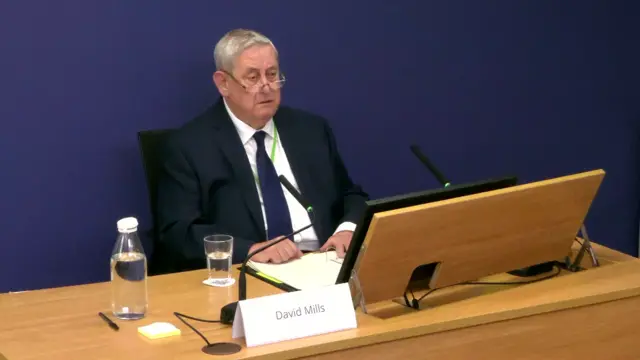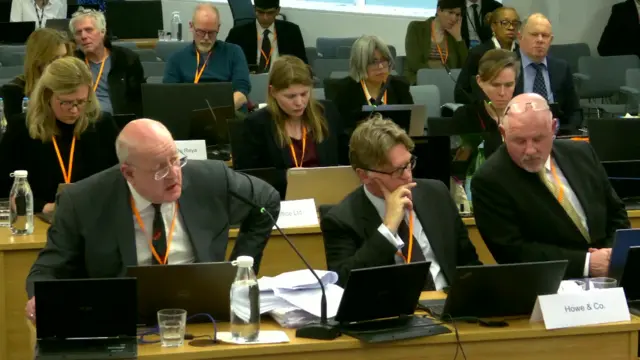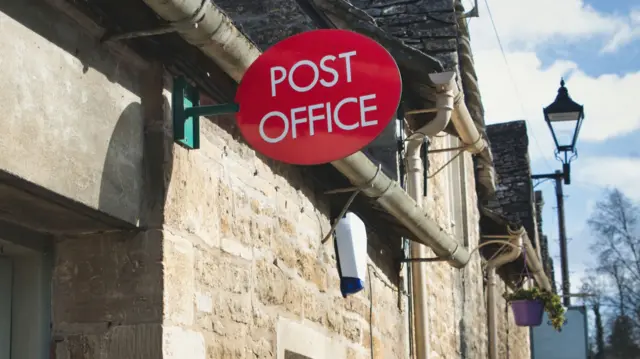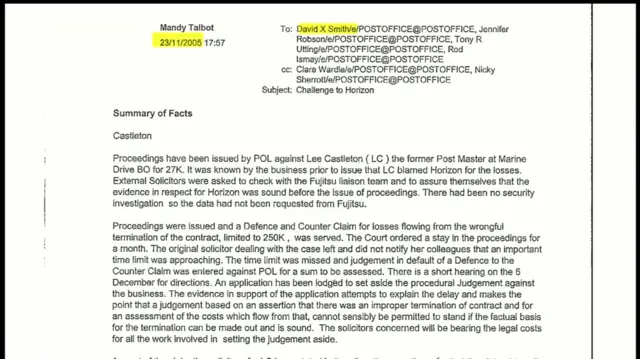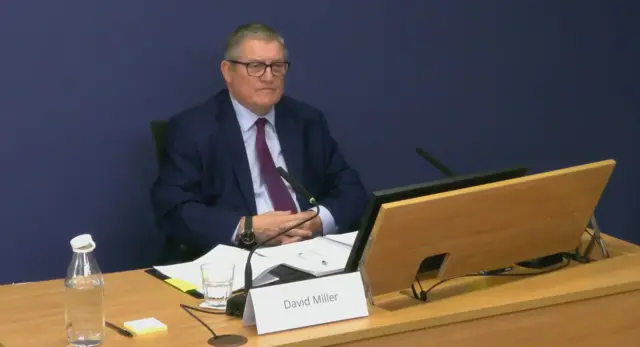'A crucial man' - Mills praises former colleague Millerpublished at 15:19 BST 16 April 2024
David Mills - a former Post Office CEO - is now explaining how the PO didn't have a proper IT department when he took over. "We had Fujitsu," he says. "That was the IT department in reality."
Inquiry lawyer Sam Stevens asks Mills whether he thinks he had sufficient IT expertise within the Post Office to properly understand whether Horizon was adequate.
"No," he says, adding he did try to address that by recruiting an IT director.
Stevens asks if he told David Miller (who we heard from earlier) about his IT concerns, to which Mills says he did.
"Miller is a crucial man in this. He is very thoughtful. He worked extremely hard, he was running the network, and he was running the network with aplomb in my view, given the things that we were trying to do," Mills adds.

